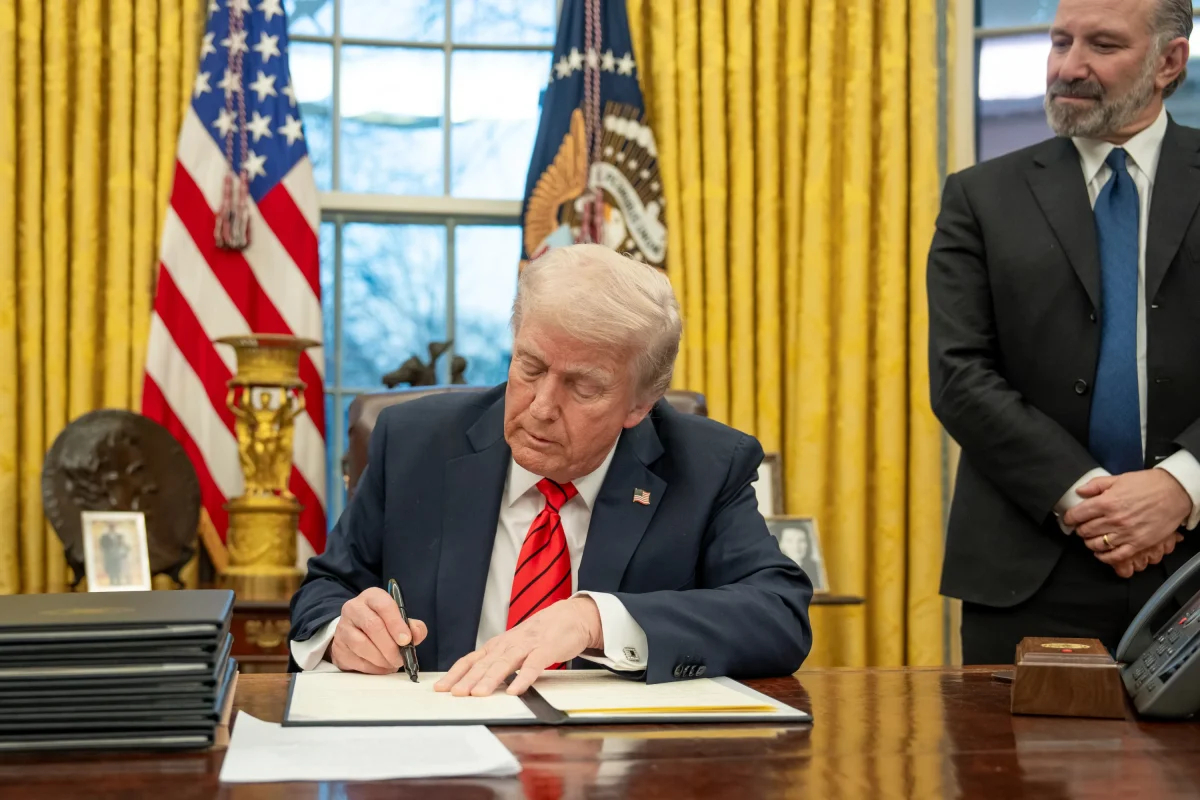by Christian Knapp ’14
Recently, there has been a serious push to switch from using to the Electoral College to elect the President of the United States to having the president elected from the popular vote. The motivation for this seems obvious. In the United States there is not just one presidential election, there are 51 (one in each state, plus one for the District of Columbia).
Through the use of a “winner take all” system in all states except for Maine and Nebraska, individual votes often have little meaning. For example, if a Democrat from Tennessee voted for Obama in the previous election, his or her vote would not effect the national election. The Republicans would win an overwhelming majority of the popular vote in the state, giving all of Tennessee’s 11 electoral votes to Romney. When it comes time to add up the electoral votes (which officially takes place in January) this citizen’s vote will not be counted.
It is well known that it is possible to win the Electoral College without winning the national popular vote, which begs the following question: What is the minimum number of individual votes needed to win the electoral college? I decided to find out.
Before I explain my calculations it is first important to note three things. First, I counted Maine and Nebraska as not being able to split their electoral votes, which they did not end up doing in the recent election. Second, I assumed a 100% voter turnout, an extremely unlikely occurrence. Third, for my eligible voter data I used a professor from George Mason University’s estimates, which are available here.
The first thing I did was find how many votes were needed to win each state. The formula I used to calculate the minimum number of votes to win the majority in each states half of all eligible voters plus one. For example, with 10 voters 5 would be half and 6 (5+1) would be a majority. In cases where an odd number had to be divided, 0.5 was added instead of 1. In this instance, if a state has 9 voters, 4.5 would be half and 5 (4.5+0.5) would be a majority.
Next, I divided the minimum number of votes needed to win each state, by each state’s number of electoral votes. For example, in order for a candidate to win the state of Alabama he or she must secure 1,761,169 votes. When 1,761,169 votes are divided by Alabama’s 9 electoral votes the quotient is 195,685. Here’s the states in order from lowest to highest ratio of minimum votes needed to win the state to electoral votes.
| States | Number of Votes Necessary to Win All Electoral Votes in Each State | Electoral Votes Gained | Total Number of Electoral Votes Gained by Winning Each State | Total Number of Votes Required to Win Each State |
| *Wyoming | 211,393 | 3 | 3 | 211,393 |
| *District of Columbia | 237,434 | 3 | 6 | 448,827 |
| *Vermont | 247,934 | 3 | 9 | 696,761 |
| *Alaska | 254,893 | 3 | 12 | 951,654 |
| *North Dakota | 266,526 | 3 | 15 | 1,218,180 |
| *Rhode Island | 384,393 | 4 | 19 | 1,602,573 |
| *South Dakota | 306,156 | 3 | 22 | 1,908,729 |
| *Delaware | 330,291 | 3 | 25 | 2,239,020 |
| *Hawaii | 491,472 | 4 | 29 | 2,730,492 |
| *New Hampshire | 506,871 | 4 | 33 | 3,237,363 |
| *Montana | 386,574 | 3 | 36 | 3,623,937 |
| *Maine | 523,951 | 4 | 40 | 4,147,888 |
| *Nebraska | 660,975 | 5 | 45 | 4,808,863 |
| Idaho | 547,246 | 4 | 49 | 5,356,109 |
| *New Mexico | 716,188 | 5 | 54 | 6,072,297 |
| *West Virginia | 723,577 | 5 | 59 | 6,795,874 |
| *Nevada | 888,202 | 6 | 65 | 7,684,076 |
| *Utah | 917,834 | 6 | 71 | 8,601,910 |
| *Kansas | 1,017,447 | 6 | 77 | 9,619,357 |
| *Arkansas | 1,058,335 | 6 | 83 | 10,677,692 |
| *Mississippi | 1,076,417 | 6 | 89 | 11,754,109 |
| *Connecticut | 1,279,236 | 7 | 96 | 13,033,345 |
| *Iowa | 1,131,688 | 6 | 102 | 14,165,033 |
| *South Carolina | 1,735,455 | 9 | 111 | 15,900,488 |
| *Minnesota | 1,938,377 | 10 | 121 | 17,838,865 |
| *Oklahoma | 1,357,759 | 7 | 128 | 19,196,624 |
| *Alabama | 1,761,169 | 9 | 137 | 20,957,793 |
| *Arizona | 2,180,039 | 11 | 148 | 23,137,832 |
| *Oregon | 1,414,675 | 7 | 155 | 24,552,507 |
| *Colorado | 1,827,023 | 9 | 164 | 26,379,530 |
| *Kentucky | 1,624,152 | 8 | 172 | 28,003,682 |
| *Washington | 2,438,985 | 12 | 184 | 30,442,667 |
| *Maryland | 2,045,944 | 10 | 194 | 32,488,611 |
| *Louisiana | 1,651,258 | 8 | 202 | 34,139,869 |
| *Georgia | 3,341,301 | 16 | 218 | 37,481,170 |
| *New Jersey | 2,941,488 | 14 | 232 | 40,422,658 |
| *Wisconsin | 2,116,997 | 10 | 242 | 42,539,655 |
| Texas | 8,050,099 | 38 | 280 | 50,589,754 |
| *Tennessee | 2,355,892 | 11 | 291 | 52,945,646 |
| California | 11,810,036 | 55 | 346 | 64,755,682 |
| *Indiana | 2,379,551 | 11 | 357 | 67,135,233 |
| Massachusetts | 2,390,711 | 11 | 368 | 69,525,944 |
| *Missouri | 2,205,407 | 10 | 378 | 71,731,351 |
| Illinois | 4,451,501 | 20 | 398 | 76,182,852 |
| Virginia | 2,904,385 | 13 | 411 | 79,087,237 |
| Michigan | 3,658,624 | 16 | 427 | 82,745,861 |
| New York | 6,649,784 | 29 | 456 | 89,395,645 |
| Florida | 6,674,402 | 29 | 485 | 96,070,047 |
| North Carolina | 3,485,435 | 15 | 500 | 99,555,482 |
| Ohio | 4,322,480 | 18 | 518 | 103,877,962 |
| Pennsylvania | 4,837,190 | 20 | 538 | 108,715,152 |
In this situation 50,589,754 votes are needed. That’s only 23.2% of eligible voters. So this must be the least amount of votes required to win the presidency in an election with 100% voter turnout right? Wrong.
Here you’ll notice that although I ordered the states from lowest to highest minimum number of votes to win state to electoral votes, the first time the states add up to a number above 270 electoral votes is after winning Texas, which brings the total up to 280 votes. Because I can select another combination of states that brings the total closer to 270, I can lower the number of total votes needed.
On the above table, you’ll see an asterisk before each state that ends up on my final table. Not every “small” state leads to the perfect combination of electoral votes, which is why a few of the states with a less favorable combination of electors to voters are included in the list.
In the situation below, only 48,933,59 votes are needed. That means in a presidential election with only two candidates, a candidate only needs to win 22.5% of the popular vote in order to win the Electoral College. This means that someone can become president with less than ¼ of all voters casting their vote for him or her.
| States | Number of Votes Necessary to Win All Electoral Votes in Each State | Electoral Votes Gained | Total Number of Electoral Votes Gained by Winning Each State | Total Number of Votes Required to Win Each State |
| Wyoming | 211,393 | 3 | 3 | 211,393 |
| District of Columbia | 237,434 | 3 | 6 | 448,827 |
| Vermont | 247,934 | 3 | 9 | 696,761 |
| Alaska | 254,893 | 3 | 12 | 951,654 |
| North Dakota | 266,526 | 3 | 15 | 1,218,180 |
| Rhode Island | 384,393 | 4 | 19 | 1,602,573 |
| South Dakota | 306,156 | 3 | 22 | 1,908,729 |
| Delaware | 330,291 | 3 | 25 | 2,239,020 |
| Hawaii | 491,472 | 4 | 29 | 2,730,492 |
| New Hampshire | 506,871 | 4 | 33 | 3,237,363 |
| Montana | 386,574 | 3 | 36 | 3,623,937 |
| Maine | 523,951 | 4 | 40 | 4,147,888 |
| Nebraska | 660,975 | 5 | 45 | 4,808,863 |
| New Mexico | 716,188 | 5 | 50 | 5,525,051 |
| West Virginia | 723,577 | 5 | 55 | 6,248,628 |
| Nevada | 888,202 | 6 | 61 | 7,136,830 |
| Utah | 917,834 | 6 | 67 | 8,054,664 |
| Kansas | 1,017,447 | 6 | 73 | 9,072,111 |
| Arkansas | 1,058,335 | 6 | 79 | 10,130,446 |
| Mississippi | 1,076,417 | 6 | 85 | 11,206,863 |
| Connecticut | 1,279,236 | 7 | 92 | 12,486,099 |
| Iowa | 1,131,688 | 6 | 98 | 13,617,787 |
| South Carolina | 1,735,455 | 9 | 107 | 15,353,242 |
| Minnesota | 1,938,377 | 10 | 117 | 17,291,619 |
| Oklahoma | 1,357,759 | 7 | 124 | 18,649,378 |
| Alabama | 1,761,169 | 9 | 133 | 20,410,547 |
| Arizona | 2,180,039 | 11 | 144 | 22,590,586 |
| Oregon | 1,414,675 | 7 | 151 | 24,005,261 |
| Colorado | 1,827,023 | 9 | 160 | 25,832,284 |
| Kentucky | 1,624,152 | 8 | 168 | 27,456,436 |
| Washington | 2,438,985 | 12 | 180 | 29,895,421 |
| Maryland | 2,045,944 | 10 | 190 | 31,941,365 |
| Louisiana | 1,651,258 | 8 | 198 | 33,592,623 |
| Georgia | 3,341,301 | 16 | 214 | 36,933,924 |
| New Jersey | 2,941,488 | 14 | 228 | 39,875,412 |
| Wisconsin | 2,116,997 | 10 | 238 | 41,992,409 |
| Tennessee | 2,355,892 | 11 | 249 | 44,348,301 |
| Indiana | 2,379,551 | 11 | 260 | 46,727,852 |
| Missouri | 2,205,407 | 10 | 270 | 48,933,259 |








